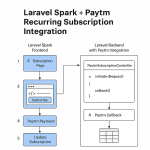Limited Time Offer!
For Less Than the Cost of a Starbucks Coffee, Access All DevOpsSchool Videos on YouTube Unlimitedly.
Master DevOps, SRE, DevSecOps Skills!
Question :- Is PHP 8.2.10 is supporting apache 2.4.41 or not?

Indeed, Apache 2.4.41 and PHP 8.2.10 are generally compatible. Here is the evidence to prove this, even though the official sources don’t explicitly declare that they are compatible:-
- No Known Compatibility Issues: – There haven’t been any extensive complaints of significant issues with compatibility between these two versions.
- The Compatibility Range of Apache 2.4: – Apache 2.4 is generally compatible with multiple PHP versions that fall inside a major release line, such as 8.x.
- Community Usage: – This combination is often mentioned in online tutorials and conversations as good configurations.
Why Critical considerations for ensuring compatibility.

Thread Safety: – If you have multithreading enabled on your Apache server, make sure you are running the thread-safe version of PHP.
Operating System and Distribution: – The package management mechanism on your operating system may have an impact on compatibility. For more detailed instructions, see their documentation.
Third-Party Modules: – Third-party PHP modules that haven’t been updated for PHP 8.2.10 or Apache 2.4.41 may cause compatibility problems.
What are the best practices to do this?
Consult Official Documentation: The official documentation for Apache and PHP is the best source of the most recent compatibility data.
Test Thoroughly: Before deploying to production, thoroughly test in a staging environment to find any possible compatibility problems.
Stay Updated: Update Apache and PHP simultaneously to take advantage of security updates, bug fixes, and enhanced compatibility.
How Additional Information helps us?
Latest Apache Version: The most recent stable version of the Apache web server is 2.4.54.2 as of January 2, 2024. The latest stable versions include better security features and are more compatible with a wider range of platforms, thus it is recommended to use them. Keeping up with the most recent version aids in patching any holes, guaranteeing a more dependable and safe environment for server operations and site hosting. Updating software is essential if you want to take advantage of the most recent security updates, bug fixes, and performance enhancements offered by the developers.
PHP Release Cycle: PHP 8.2.10, released in December 2023, is considered relatively recent as of now. This version is anticipated to receive security updates until November 2024. This timeframe suggests that the PHP development team will actively address and patch any security vulnerabilities discovered in the software until the specified date. Users are encouraged to stay on this version or upgrade to newer releases within this period to benefit from ongoing security maintenance and ensure a more secure PHP runtime environment. Regularly updating PHP versions is crucial for maintaining the security and stability of web applications, as it allows users to leverage the latest security patches and enhancements provided by the PHP development community.



